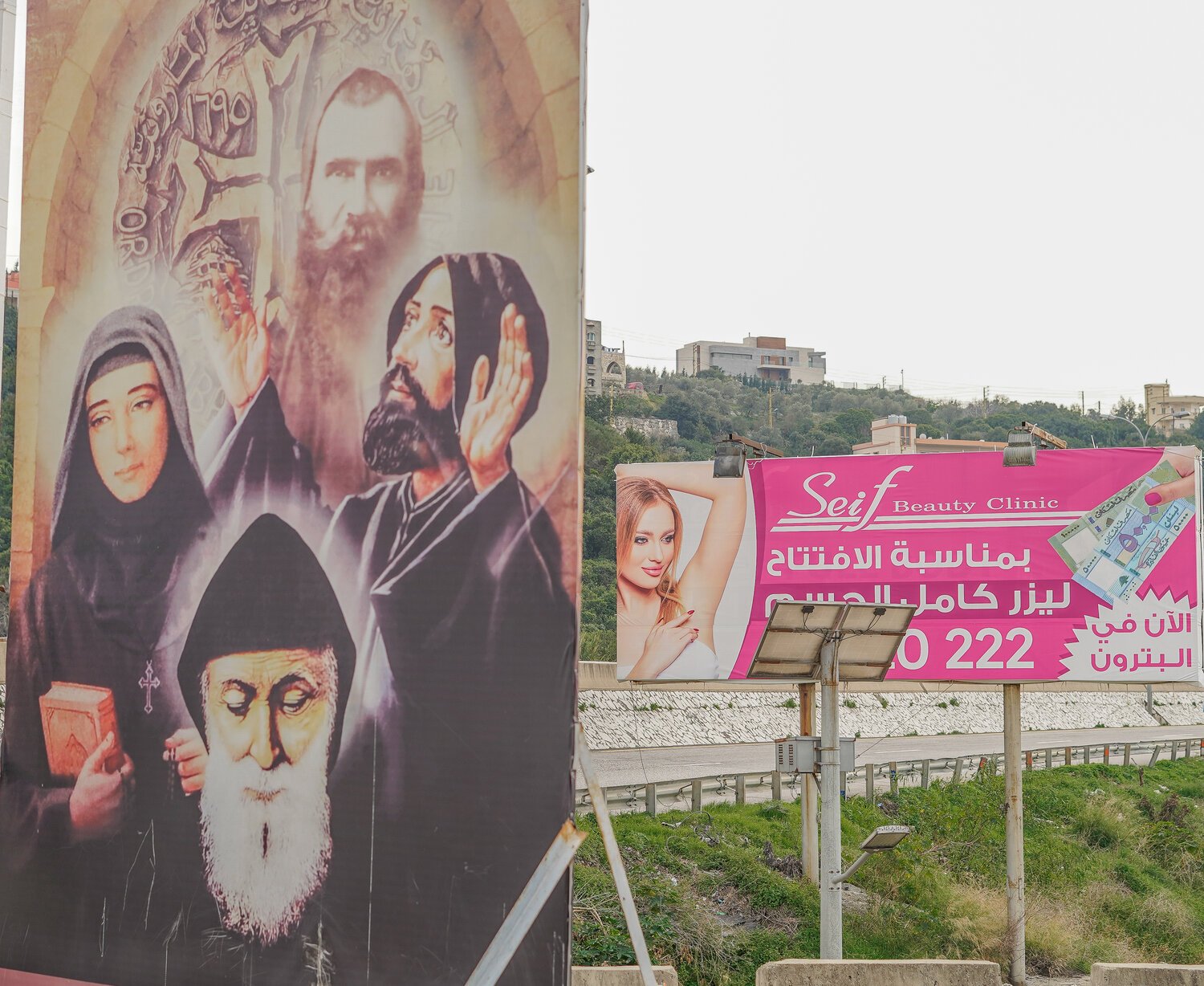How Lara Chahine directs her lens towards Lebanon’s suffocating beauty standards
Images courtesy of the artist.
Words by Rand Al-Hadethi.
Beauty is sacred in Lebanon, and achieving it by any means necessary is hailed. Yet the matter raises questions about collective and individual identities within the tangle of gender roles, religious influences, and westernisation. Body politics are both intimate and isolated. Most women identify with social pressure despite personal experiences dictating their cosmetic choices. As part of her project, ‘Bless Your Beauty’, Lebanese Photographer Lara Chahine explores those notions with the hope of liberating women from societal constraints.
Though it was a therapeutic process, Chahine experienced firsthand how body image conversations can have negative repercussions, no matter how sincere. "I was giving a lot of myself to these amazing women, and it was very fulfilling, but I also realised that I was internalising a lot of their insecurities that I didn't know existed," reflects Chahine. "But after the project was published, I started getting a lot of nice responses from women saying how they related to it. So being able to fulfil my intention for this project was worth it. Now, one year later, I'm starting to feel the positive effects of what I did. Because at the moment, it was just me absorbing a lot of other people's insecurities."
Sharing a complex reality without creating an attractive fantasy can be challenging for many creatives. Chahine, however, criticised the suffocating aesthetic canon without entertaining it. Most likely to spare her viewers from the trauma-bonding hellscape she and her peers lived through during high school. "There was a mentality of self-harm, both physically and mentally. We bonded over self-hatred and self-deprecation. We used to feed off each other's insecurities paired with our own," shares Chahine. "We all had the same ideal look in our heads, but none of us could possibly achieve that."
Beauty in the region, particularly in Lebanon, has always been influenced by Western culture. A year after the 2006 War, however, things got ugly. Lebanon launched bank loans for plastic surgery and marketed it with billboards depicting blonde, blue-eyed, European-looking women with the slogan 'have the life you've always wanted.' With Lebanon suffering through a financial crisis, Chahine was puzzled about the country's ability to secure the money for 900 billboards and the loan itself. More so, why was it "convincing women post-war that their happiness can now arrive in the form of a new face?" Unfortunately, the loan was only the tip of the iceberg. Beauty matters have grown so quotidian that women view body modification as a norm. A plastic surgeon is as convenient as a grocery store. In fact, thousands of clinics in Lebanon operate without a license. "They just get away with it," says Chahine. "A gynaecologist once performed liposuction on a 15-year-old just because he had the machine."
But what's equally disturbing is the gynaecologists who perform hymen reconstruction surgeries. "It was something a lot of women, especially university students, in Lebanon were doing. Either they lied to their boyfriends about being virgins, or they're getting married," shares Chahine. "The doctor justifies it by saying he's saving their livelihoods because the women might die otherwise. Honour killings still exist; probably not to the extent of other countries, but you will still hear cases of women dying because they weren't virgins."
But unfortunately, even with hymen reconstruction surgery, women can't escape the patriarchal fantasy of a hyper-sexual and hyper-modest woman. Even if modesty was a woman's choice, men still view them as unattainable objects of desire that are further fetishised. And yet, when denied autonomy, women are still expected to be sexy eye candy. As Chahine puts it, men expect a woman to be adjacent to the Virgin Mary and Lebanon's sex symbol Haifa Wehbe - who, to this day, is criticised and lusted after.
Nevertheless, the uncanny and contradictory reality that women face is not limited to Lebanon alone; it is a phenomenon common throughout the Middle East. And while patriarchal commentary remains inevitable, Chahine's Bless Your Beauty proves that empowering women to challenge the status quo is essential.
Follow Lara’s work here.



















